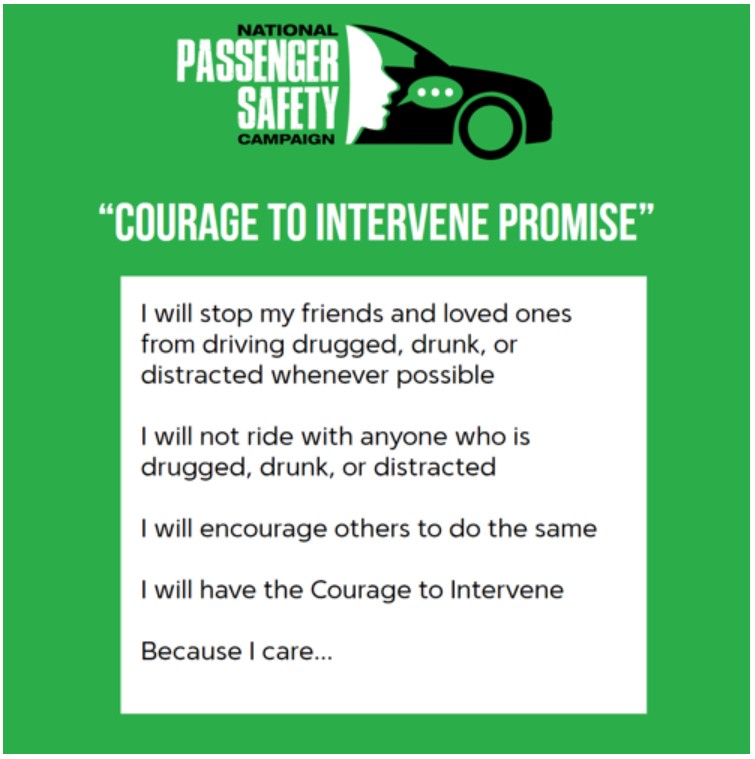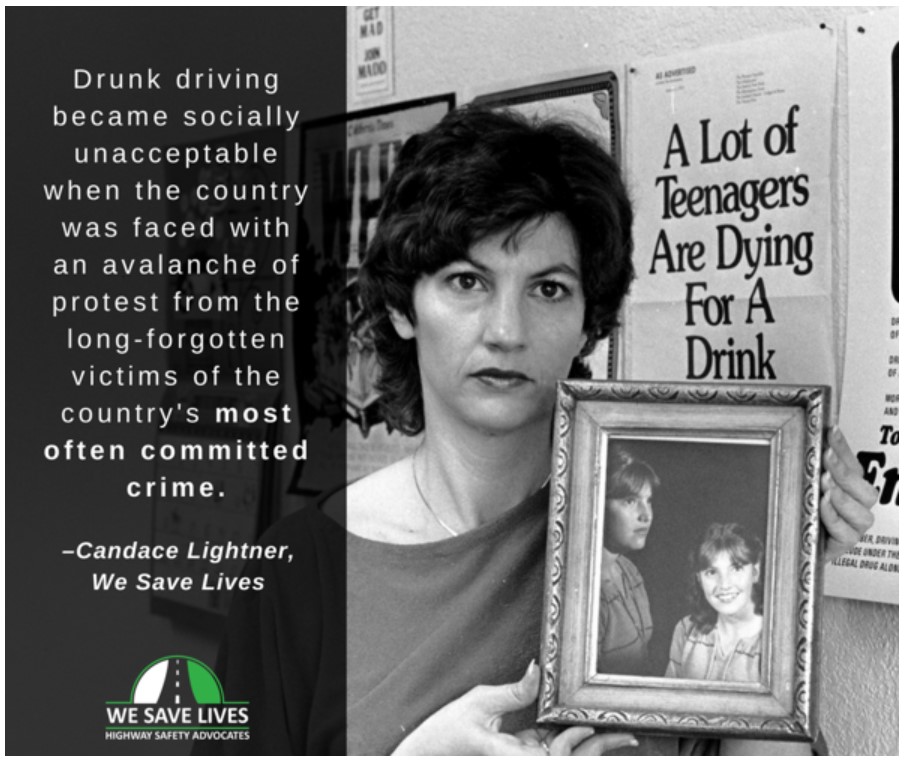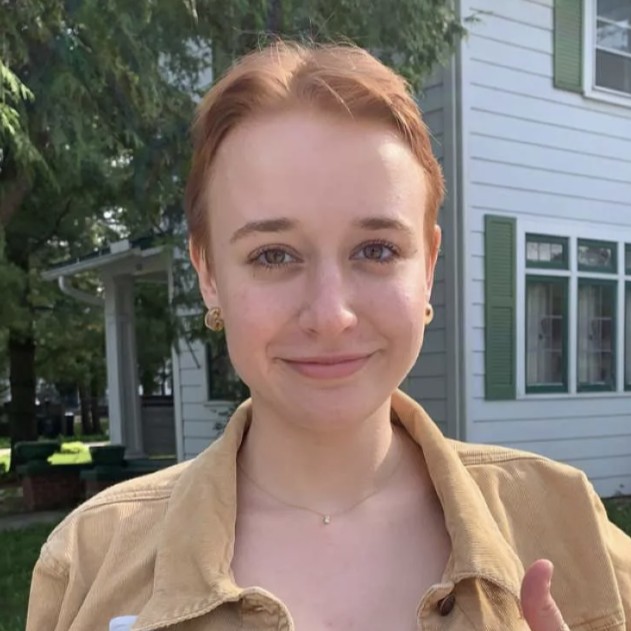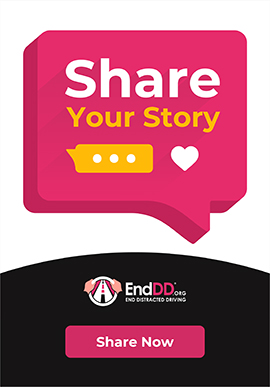National Passenger Safety Week: “We must speak up as passengers and will be most effective if we do so in a non-confrontational manner.” – Joel Feldman
In 2010, Joel Feldman, founder of EndDD, produced a short video in which a deadly traffic accident is avoided because a passenger speaks up. “Dad,” says the daughter who is a passenger, “I love you, but I don’t feel safe when you drive me and look at your phone.”
January 22 – 28 is National Passenger Safety Week (NPSW) this year. National Passenger Safety Week promotes traffic safety by encouraging passengers in cars to speak up when their drivers’ behaviors concern them, as the girl in the EndDD video does. If you’re a passenger in a car with a distracted driver, the life you save may be your own: Fully a quarter of those killed in traffic fatalities were passengers, according to the Insurance Institute for Highway Safety.
Feldman enthusiastically supports NPSW which was created by We Save Lives and the National Road Safety Foundation. Feldman works with students across the country teaching them the best approach to speaking up in order to keep themselves and others safe when their friends, or parents drive distracted.
Speaking up when one feels nervous, or uncomfortable about another’s actions is referred to as “ bystander intervention.” “When we choose to intervene, or speak up, we will be most effective if we do so in a non-confrontational manner, telling our drivers how we feel when they look at their phones,” says Feldman.

“The simple statement ‘I don’t feel safe when you drive me and look at your phone’ works nearly every time,” says Feldman. “ An ‘I statement,’ as the passenger in the EndDD video, uses is, by its nature, about the speaker, not the recipient (the driver). Using ‘I’ instead of ‘you’ is inherently non-confrontational. When drivers hear concerns expressed by their passengers they put their phones down. It is almost never even necessary to actually ask the driver to put their phone down when an ‘I statement’ is used,” says Feldman.
Feldman teaches students how to effectively intervene using role play scenarios with students. One student assumes the role of a distracted driver, the other their concerned passenger. “As you can imagine, we have a lot of fun working through which types of statements that will work and those which will not. Students playing the role of the distracted driver frequently relate, after having a friend express concern about their distracted driving. Using an ‘I statement’ makes them feel badly and they immediately put their phone down.”
“Drunk driving is not socially acceptable. Unfortunately, I don’t think you could say the same about distracted driving today,” Feldman said.
How does distracted driving become socially unacceptable? According to Feldman, by getting people who care about other people to speak up and tell people that they feel uncomfortable when they use their phone while driving.
In August of this year, the U.S. Department of Transportation released a study that found the EndDD.org presentations were very effective in a number of areas, including teaching students intervention skills and increasing the frequency of actual interventions.
In its high school presentations EndDD.org uses this short video to drive home the importance of speaking up.
Feldman is optimistic that students will make distracted driving as unacceptable as drunk driving and that speaking up as passengers when drivers drive distracted is critical to achieving that goal.

This is National Passenger Safety Week, it’s important to know the risks of distracted driving and the benefits of speaking up. As the National Passenger Safety Week organization says, “Passengers can make a difference, because ‘one courageous voice can change one deadly choice.’”






